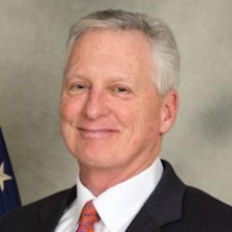
As reported by BTN portfolio mate The Beat, the U.S. government has changed the way civilian agencies will source and contract with travel management companies. U.S. General Services Administration executive director Tim Burke has defined a process in which federal agencies will contract travel services directly with travel management companies and separately from technology, which currently is in the pre-solicitation phase to source a contractor to operate the government's next-generation end-to-end travel booking and expense system, called ETSNext. GSA plans to grant the technology contract to a single operator.
GSA is phasing out the "embedded" model, which positioned TMCs as subcontractors to the technology operator and resulted in government agencies not having a direct contractual relationship with their TMC. The new "accommodated" model, as a result, will open up TMC competition for government travel business and, according to Burke, will allow TMCs with different levels of service and specialties to compete on their strengths to serve civilian agencies directly for offline services and fulfillment.
Sourcing travel services separately from technology has been an alternative under the current ETS2 model, but going forward it will be the only option for civilian agencies.
"I watched what happened with ETS1 and ETS2," Burke said during a Zoom call with industry participants in September. "I heard from a lot of small business travel agencies as well as some big travel agencies, and they certainly are independent businesses and they bring different service levels. Sometimes that gets lost when you're under the umbrella of a travel and expense technology contract."
GSA is targeting late 2024 for ETSNext implementations with early adopters. Full implementation of ETSNext and supporting TMCs is slated to extend through the first half of 2027. Incumbents CWTSato and Concur Travel are expected to bid for the technology contract, but only Concur has indicated as much. Presumably, CWTSato would bid for both tech and service contracts; they function in both capacities currently.
Whatever vendor wins the technology operator contract will be expected to work with any TMC selected by the federal agencies. According to GSA, the new model will increase TMC bids from federal agencies and enable those agencies to access the latest services from TMCs. By stimulating robust competition to get the business, GSA also expects garner those services at the best rates.